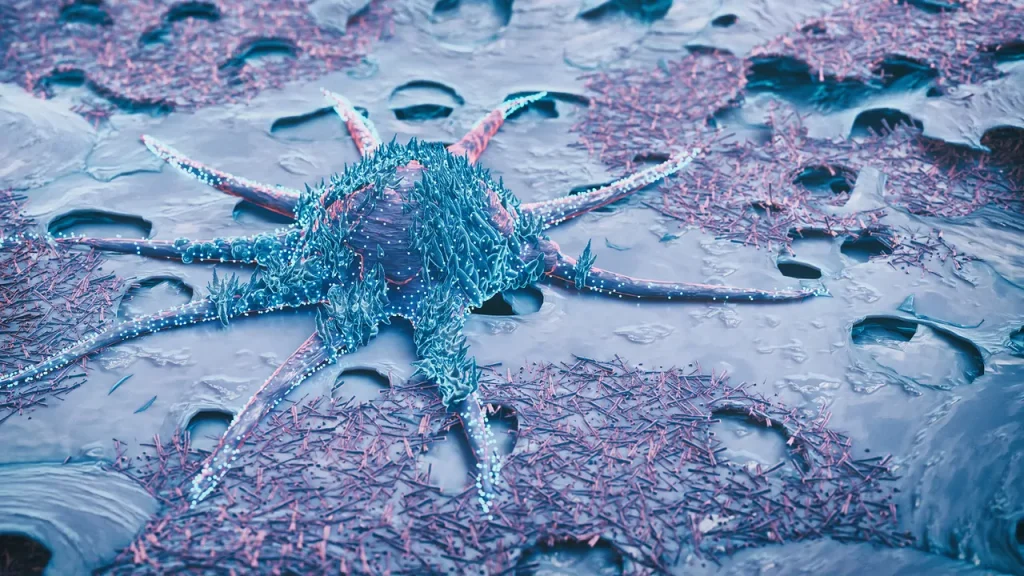
Trans-vaccenic acid (TVA) has the potential to be used as a nutritional supplement to complement cancer therapies.
A fatty acid found in meat and dairy has been found to increase cancer-fighting T-cell activity in a study from the University of Chicago. The research, published in Nature, also suggests that trans-vaccenic acid (TVA) has the potential to be used as a nutritional supplement to complement cancer therapies.
The biological importance of dietary metabolites
The associations between our diets and our health are incredibly complex and to understand them many factors must be taken into account, such as the astonishing variety of different foods.
Now, new research from the University of Chicago, led by Dr. Jing Chen, has revealed how one nutrient may enhance the immune response against cancer. Chen specializes in investigating how molecules in the blood, such as nutrients and metabolites, can affect cancer development as well as treatments.
“We thought that, after millions of years of human evolution, circulating nutrients must be vital to human physiology and pathologic responses like immune system response,” says Chen, Janet Davison Rowley Distinguished Service Professor in Cancer Research at the University of Chicago, and one of the senior authors of the study, speaking to Technology Networks. “We decided to comprehensively address this question by putting together a novel compound library and performing screens to look for nutrients that may improve anti-tumor immunity.”
TVA boosts anti-tumor immunity
Chen’s study began with a database of ~700 food-derived metabolites that was later narrowed down to create a “blood nutrient” library of 255 bioactive compounds.
These compounds were screened in vitro to identify those that could activate CD8+ T cell responses against lung cancer cells and the top six candidates were taken forward to the next stage.
Screens using human and mouse cells revealed the top compound was TVA – a naturally occurring fatty acid found in beef, lamb and dairy products.
Importantly, the human body cannot produce TVA on its own. In humans and mice, only ~20% of TVA is broken down into byproducts – such as rumenic acid – suggesting it may have another purpose.
They discovered that TVA activates T cells by binding to a receptor called GPR43. This activates the CREB cell signaling pathway involved in cell growth and survival. Strikingly, removing the GPR43 receptor from CD8+ T cells in mice impaired their anti-cancer activity.
Additionally, feeding experimental mice with TVA-enriched diets significantly slowed the growth of melanoma cells compared to mice on a control diet, while improving CD8+ T cell infiltration into the tumors.
“As a natural food component, TVA has high translational potential to be used as a dietary element or a treatment supplement in therapeutic approaches to ameliorate clinical outcomes,” Chen explains. “For example, a combination of TVA and immune checkpoint inhibitors could be tested for improved immunotherapies to treat cancer patients. TVA can be combined with specific T-cell engagers to treat B cell acute lymphoblastic leukemia (B-ALL) patients, or with chimeric antigen receptor (CAR) T cells for improved efficacy of treating cancer patients.”
Implications for cancer therapy?
The study suggests that some nutritional supplements – such as TVA – could be used to promote T-cell activity and potentially enhance T cell-based cancer treatments.
“Our mouse model studies demonstrate TVA’s anti-tumor activity through enhancing CD8+ T-cell function,” Chen describes. “This warrants future clinical studies using TVA as a treatment supplement for T cell-based immunotherapies.”
“After millions of years of evolution, there are only a couple hundred metabolites derived from food that end up circulating in the blood, so that means they could have some importance in our biology,” Chen said in a press release. “To see that a single nutrient like TVA has a very targeted mechanism on a targeted immune cell type, with a very profound physiological response at the whole organism level – I find that really amazing and intriguing.”
Reference: Fan H, Xia S, Xiang J, et al. Trans-vaccenic acid reprograms CD8+ T cells and anti-tumor immunity. Nature. 2023. doi: 10.1038/s41586-023-06749-3
Dr. Jing Chen was speaking to Dr. Sarah Whelan, Science Writer for Technology Networks.























